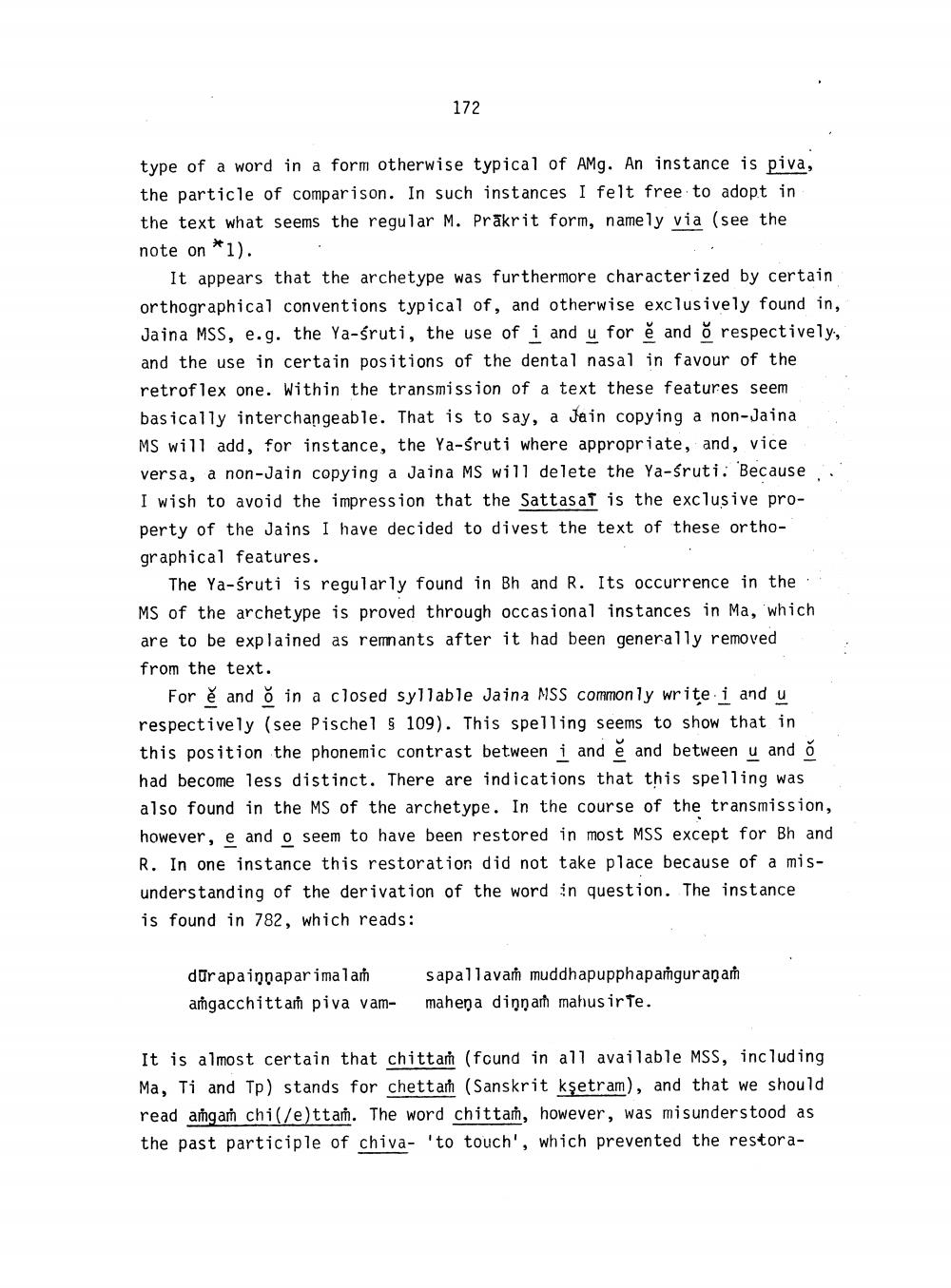Book Title: Halas Sattasai
Author(s): Hermen Tieken
Publisher: Leiden
View full book text
________________
172
type of a word in a form otherwise typical of AMg. An instance is piva, the particle of comparison. In such instances I felt free to adopt in the text what seems the regular M. Prākrit form, namely via (see the note on *1).
It appears that the archetype was furthermore characterized by certain orthographical conventions typical of, and otherwise exclusively found in, Jaina MSS, e.g. the Ya-śruti, the use of i and u for ě and ŏ respectively, and the use in certain positions of the dental nasal in favour of the retroflex one. Within the transmission of a text these features seem basically interchangeable. That is to say, a Jain copying a non-Jaina MS will add, for instance, the Ya-śruti where appropriate, and, vice versa, a non-Jain copying a Jaina MS will delete the Ya-śruti: 'Because I wish to avoid the impression that the Sattasat is the exclusive property of the Jains I have decided to divest the text of these orthographical features.
The Ya-śruti is regularly found in Bh and R. Its occurrence in the MS of the archetype is proved through occasional instances in Ma, which are to be explained as remnants after it had been generally removed from the text.
For ě and © in a closed syllable Jaina MSS commonly write i and u respectively (see Pischel & 109). This spelling seems to show that in this position the phonemic contrast between i and ě and between u and o had become less distinct. There are indications that this spelling was also found in the MS of the archetype. In the course of the transmission, however, e and seem to have been restored in most MSS except for Bh and R. In one instance this restoration did not take place because of a misunderstanding of the derivation of the word in question. The instance is found in 782, which reads:
durapainpapar imala angacchitt a piva vam-
sapallava muddhapupphapaṁguranan mahena di na mahusirTe.
It is almost certain that chittań (found in all available Mss, including Ma, Ti and Tp) stands for chetta (Sanskrit kşetram), and that we should read agań chic/e)ttam. The word chittañ, however, was misunderstood as the past participle of chiva- 'to touch', which prevented the restora

Page Navigation
1 ... 183 184 185 186 187 188 189 190 191 192 193 194 195 196 197 198 199 200 201 202 203 204 205 206 207 208 209 210 211 212 213 214 215 216 217 218 219 220 221 222 223 224 225 226 227 228 229 230 231 232 233 234 235 236 237 238 239 240 241 242 243 244 245 246 247 248 249 250 251 252 253 254 255 256 257 258 259 260 261 262 263 264 265 266 267 268 269 270 271 272 273 274 275 276 277 278 279 280 281 282 283 284 285 286 287 288 289 290 291 292 293 294 295 296 297 298
